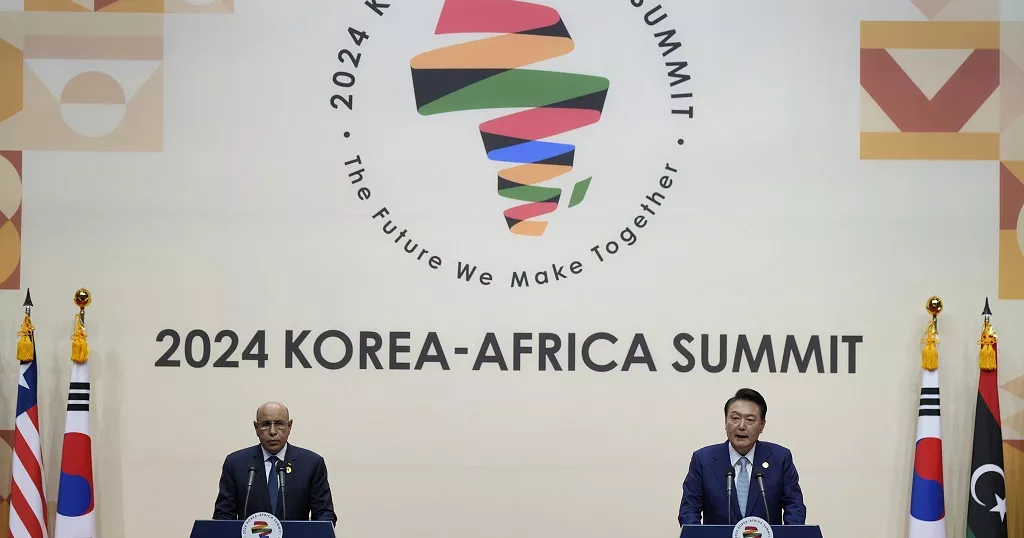South Korea will expand development aid to Africa and pursue deeper cooperation with the region on critical minerals and technology, President Yoon Suk Yeol announced Tuesday at the inaugural Korea-Africa Summit.
In his speech, Yoon urged African nations to join an international pressure campaign against North Korea. Relations between the Koreas have worsened, with the North accelerating tests of nuclear-capable weapons systems and sending balloons carrying trash and manure into South Korea.
Africa’s 54 states are a significant bloc at the United Nations, holding three rotating seats on the Security Council. Representatives from 48 African nations, including 25 heads of state, are attending the two-day summit, focusing on trade and investment.
Trade with African nations currently accounts for less than 2% of South Korea’s total imports and exports. However, following Tuesday’s meeting, South Korea and the African nations announced high-level talks to enhance cooperation over minerals. Africa is a major source of nickel, cobalt, graphite, and lithium, essential for technology industries such as semiconductors, batteries, and electric vehicles, which are major South Korean exports.
South Korean officials say expanding ties in minerals and other natural resources will improve the country’s supply chain resilience in key technology industries. Concerns are growing in South Korea about securing a stable supply of core minerals, as it has fewer mines than the United States, China, and Japan.
Yoon stated that South Korea plans to increase its cumulative development aid contributions to Africa to around $10 billion by 2030 and provide $14 billion in export financing to encourage South Korean investment in the region.
Mauritania President Mohamed Ould Ghazouani, the current chairperson of the African Union, expressed hope for South Korean investment in sectors such as commerce, new technologies, energy, food, security, human capital, and infrastructure. He voiced confidence in a “durable partnership” ahead.
The countries also pledged stronger collaboration in building sustainable infrastructure in Africa, including data-driven smart cities and intelligent transportation systems. Africa has some of the world’s least-developed infrastructure.
South Korea’s outreach to Africa comes as North Korea seeks to break its diplomatic isolation and build ties with countries opposing the United States. North Korean leader Kim Jong Un is promoting the idea of a “new Cold War.”
In May, North Korea’s Foreign Ministry stated that its relations with Africa will “continue to develop invariably” and that it will support the region’s struggle for “independent development under the banner of non-alignment as well as independence against imperialism.”
Yoon emphasized the serious security situation on the Korean Peninsula following a series of North Korean provocations, including a failed military reconnaissance satellite launch last month. He expressed hopes for coordination with African nations to pressure North Korea.
“Along with our friends in Africa, South Korea will fully implement U.N. Security Council resolutions and work to safeguard peace on the Korean Peninsula and the international community,” Yoon said.
In a joint statement, South Korea and the African nations reaffirmed their commitment to fully implement U.N. Security Council resolutions against North Korea and stressed the “importance of the efforts of the international community to achieve a complete, verifiable, and irreversible denuclearization of the Korean Peninsula.”

